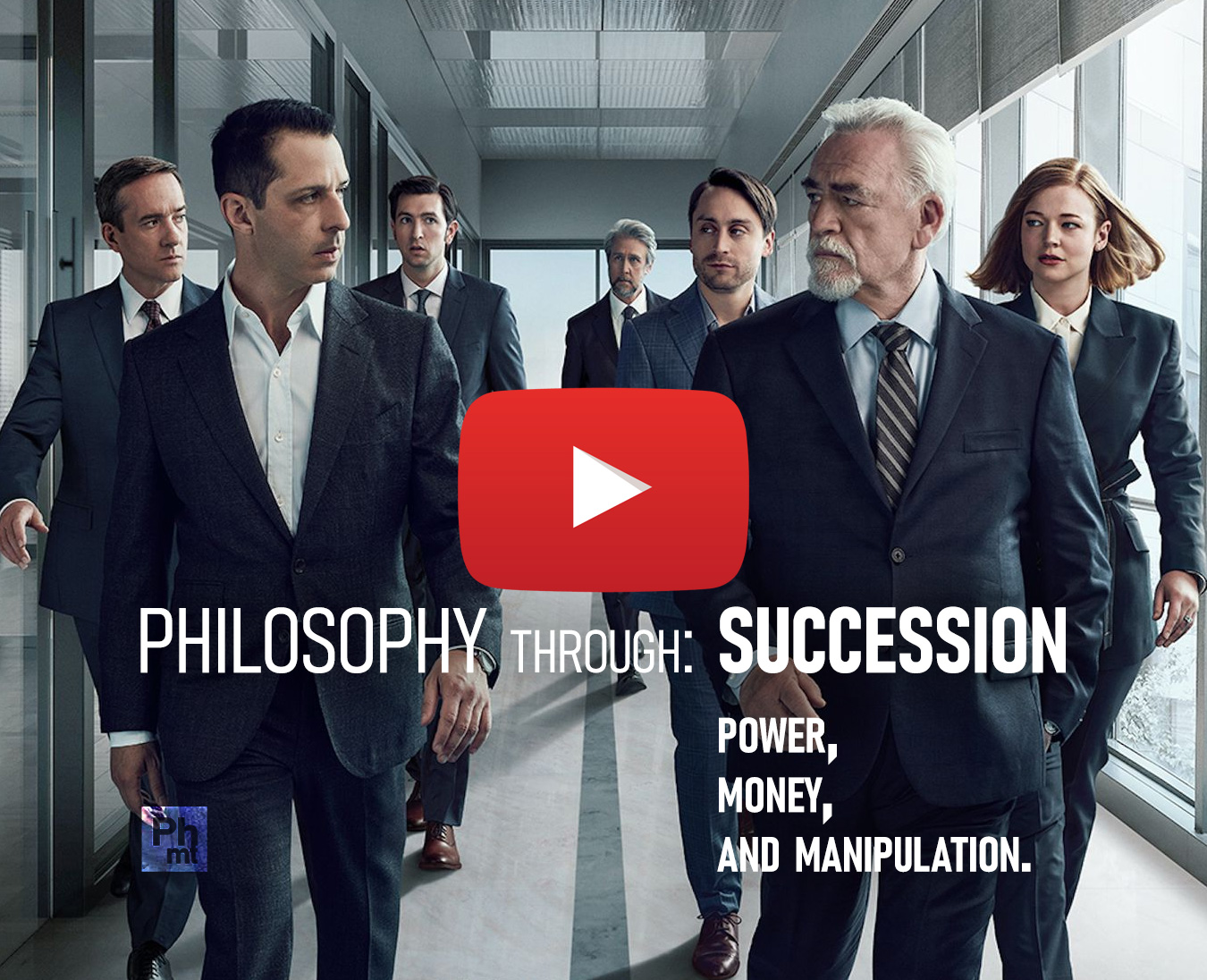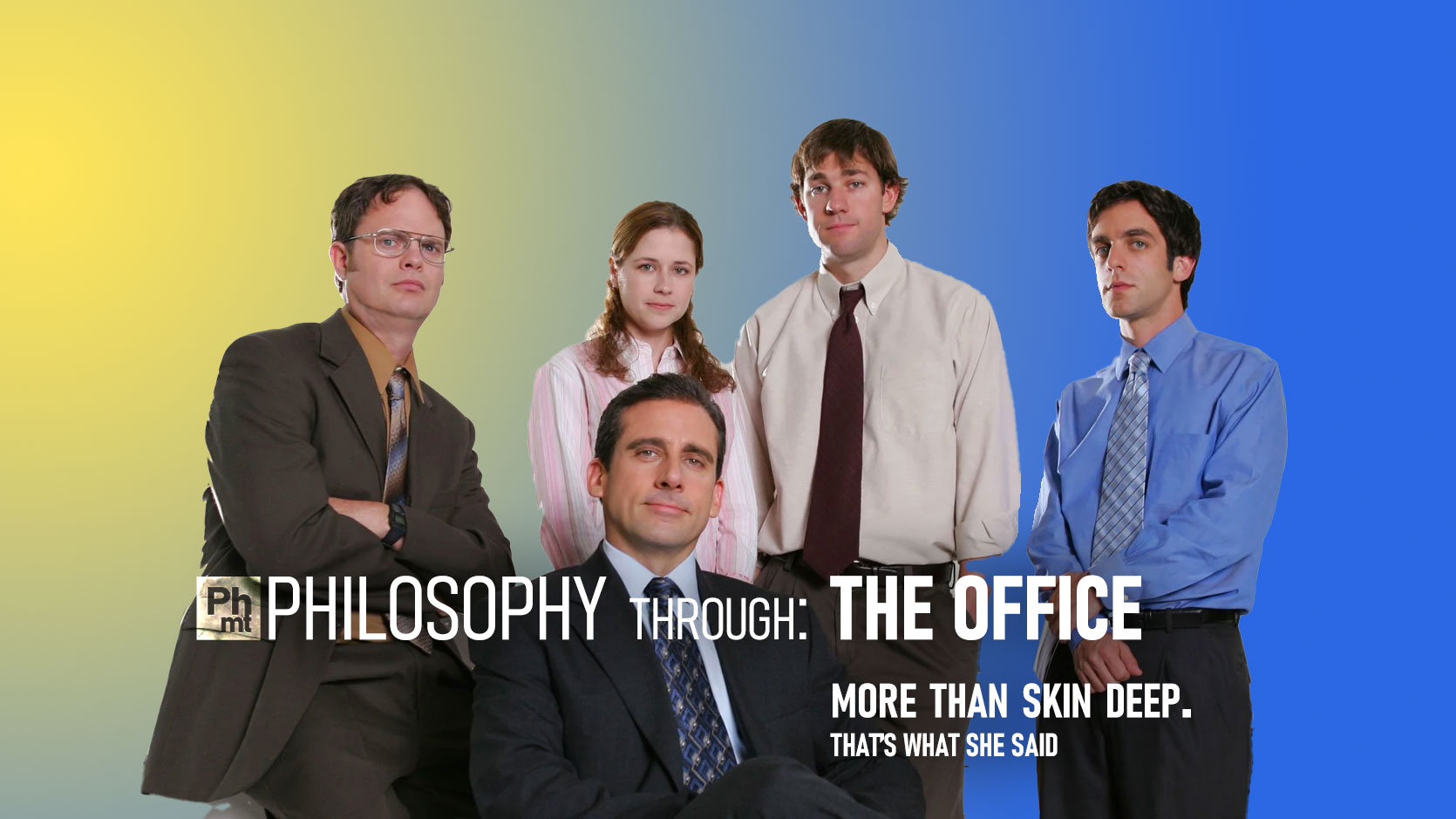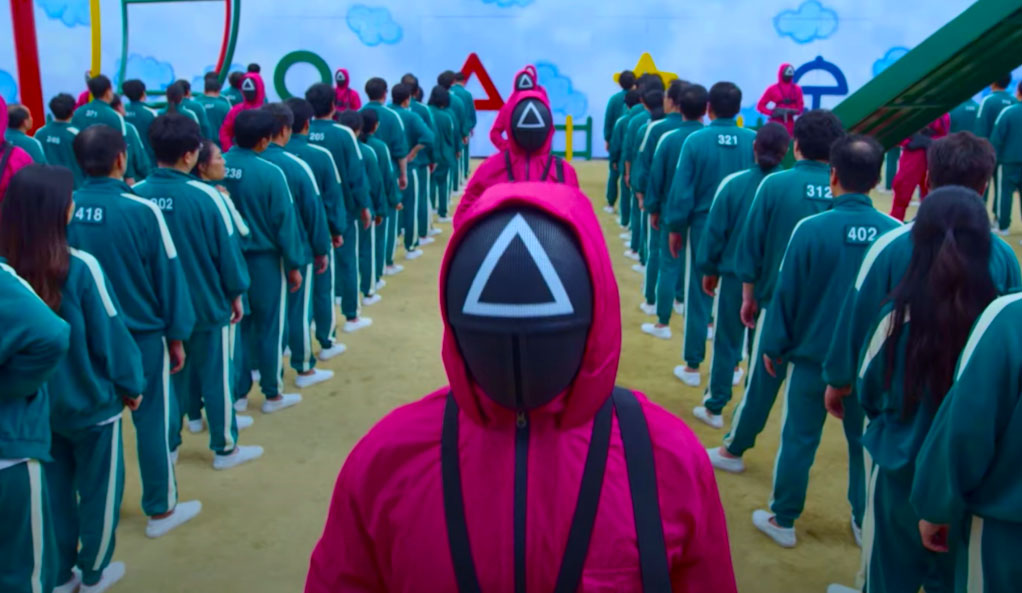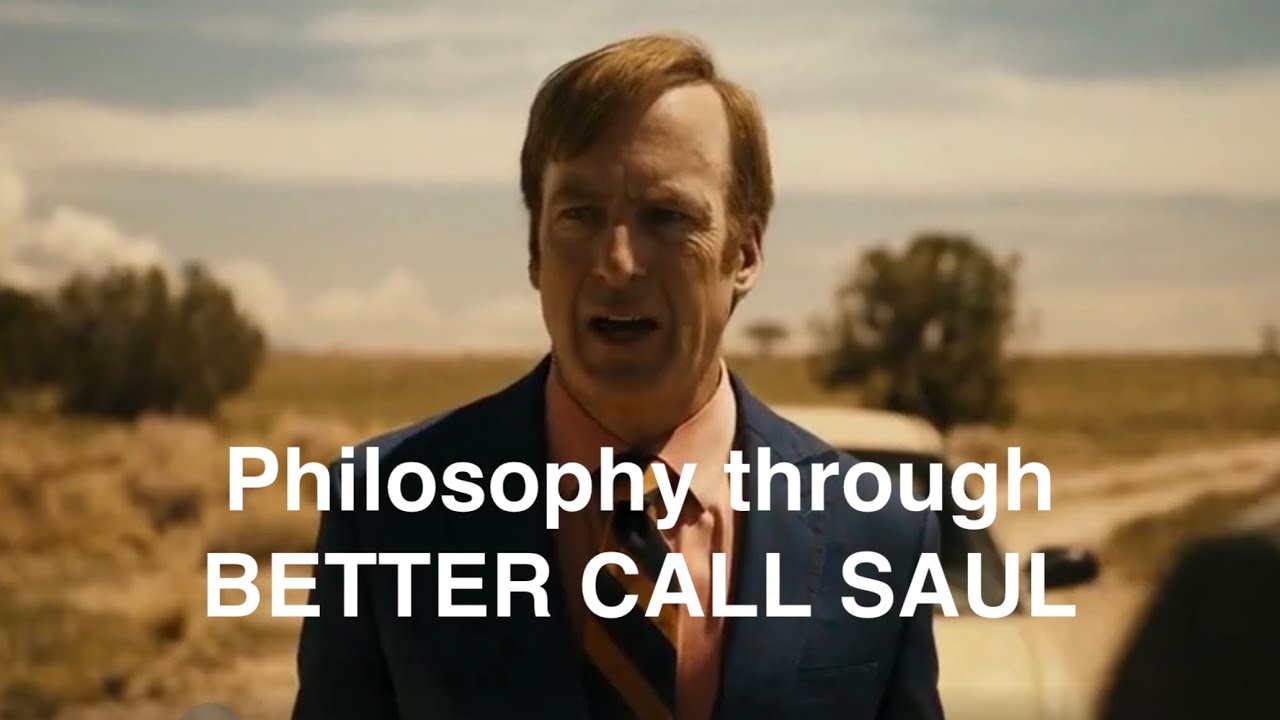Philosophy through HBO’s ‘Succession’
Power, Money, Manipulation.
‘Succession’ is a Shakespearean saga of power, family, and wealth, that delves into the tumultuous world of the Roy family, owners of the media conglomerate Waystar Royco. But it’s also more than that.
The HBO series can be seen as a mirror held up to the human condition. It reflects the struggle for power, the morality of wealth, and the pain of familial bonds. Amidst these grand themes, it teases out subtler philosophical questions about ethics, existentialism, utilitarianism, and dialectics.
Our aims are to explore these philosophical concepts through the lens of the TV show, to make the abstract concrete, to bring theory into our living rooms, and to show that philosophy is not just for the scholars: it’s for everyone. It’s in the decisions we make, the values we hold, and the life we lead.
We will analyse characters, scrutinise plot points, and challenge assumptions. We will question and probe, for philosophy is not about finding answers. It’s about asking the right sort of questions.
But what is philosophy? At its core, philosophy is a discipline that explores fundamental questions about existence, reality, knowledge, values, reason, mind, and ethics. It’s not about memorising definitions. It’s about critical thinking, logical argumentation, and ethical decision-making.
We will be applying these philosophical tools to ‘Succession’ by teasing out the Machiavellian manoeuvres of the central family in the series, the Roys, by illuminating the existentialist undertones of their power struggles, by dissecting their utilitarian calculations, and by unravelling the Hegelian dialectics of their family dynamics.
This is our quest: to demonstrate that ‘Succession’ can serve as a philosophical study of power, wealth, and the human condition. It’s a window into our world, and a reflection of ourselves. Because philosophy isn’t just about the big questions. It’s about the small ones too. The ones that play out in our everyday lives, in the decisions we make, and the values we hold.
So, let’s delve into the world of ‘Succession’. Let’s unmask the power play, analyse the ethical dilemmas, and question the existential angst. Let’s bring philosophy out of the ivory tower, and into the realm of pop culture. This is Philosophy Through ‘Succession’.
But first of all, spoiler alert: Please be aware that the following discussion contains significant plot details from the TV series ‘Succession’. If you haven’t watched the series and wish to avoid spoilers, you may want to return to this post after viewing.
The Dance of Power and Ethics: Exploring Machiavellianism
In the world of ‘Succession’, power is currency. It’s a game, a dance, a deadly duel. And the Roy family? They are the dancers, each step a calculated move towards power and control. But there’s a name for this dance. It’s called Machiavellianism.
Machiavellianism, a term derived from Renaissance diplomat and writer Niccolò Machiavelli, refers to a political theory that prioritises power over ethics. It’s about the ends justifying the means. It’s manipulation, deceit, and cunning, all in the pursuit of power. And it’s at the heart of ‘Succession’.
Take Logan Roy, the patriarch. His thirst for power is insatiable, his strategies ruthless. From the pilot episode, we witness his iron grip on Waystar Royco. He’s relentless, unyielding, even to his own children. A textbook Machiavellian, you might think.
But the dance of power is intricate. The steps are not always clear, the moves not always predictable. For instance, consider Kendall Roy, Logan’s second son. He’s not as overtly Machiavellian as his father. His path to power is paved with insecurity and a desperate need for approval. Yet, he too manoeuvres, manipulates, and schemes. His failed coup in the season 1 finale? A perfect example of Machiavellianism, albeit clumsily executed.
However, the dance of power is not a solo performance. It involves other players, secondary characters that bring their own flavours of Machiavellianism. Tom Wambsgans, who marries into the Roy family, navigates his position with a similar blend of manipulation and ambition. His interactions with Greg, his subordinate, are a classic display of power dynamics in play.
Yet, ‘Succession’ is not a straightforward tribute to Machiavelli. There are moments of defiance, instances that challenge Machiavellian norms, moments when characters choose compassion over power, ethics over control. Shiv Roy’s struggle with her conscience during the cruises scandal, for instance, offers a counterpoint to the Machiavellian narrative.
‘Succession’, then, is not just a dance of power. It’s a nuanced exploration of Machiavellianism. It examines the price of power, the ethics of control, and the human cost of ambition. It asks us to question our own values, our own pursuit of power. Because, in the end, the dance of power is not just about the steps you take, but also the footprints you leave behind.
The Human Condition: Existentialism in the Face of Wealth and Power
‘Succession’ isn’t just about power. It’s also about people, individuals grappling with their humanity, wrestling with existence.
Existentialism is a philosophy that explores the nature of existence. It reflects on freedom, choice, and individuality. It delves into the abyss of despair, the weight of responsibility, and the quest for authenticity. In essence, existentialism posits that we are thrown into the world, left to create our own essence, our own meaning.
What does existentialism look like in ‘Succession’? It’s the characters’ struggle with their freedom, their choices, their individuality. It’s in Kendall’s crippling guilt over a fatal accident, his despair over his inability to break free from his father’s shadow. It’s in Shiv’s quest for authenticity, her fight against the mould her father wants to cast her into.
Consider Kendall’s emotional meltdown in the season 2 finale. His public betrayal of Logan is an act of rebellion, a desperate attempt to assert his freedom. But it’s more than that. It’s an existential cry, a plea for meaning in a life dominated by power and control. It’s Kendall, in all his vulnerability, grappling with his existence.
Even the patriarch, Logan, is not immune to existential angst. His fight against a hostile takeover, his struggle with his health, his battle to keep his family under his control – all of these are existential struggles. They are about a man wrestling with his mortality, his legacy, and his very existence.
But ‘Succession’ does more than just portray existentialism. It questions it. There are moments in the series that challenge existentialist ideals, that depict the consequences of unfettered freedom. Roman Roy’s reckless behaviour, his refusal to take responsibility, his flippant attitude towards life – these are the darker shades of existential freedom.
‘Succession’ explores the human condition through the prism of existentialism. It delves into the heart of despair, the weight of freedom, the quest for authenticity. It’s not just a study of existentialism, but also a critique of it. And in doing so, it compels us to question our own existence, our own choices, our own quest for authenticity as human beings, both in all its glory and despair.
The Pursuit of Happiness: Utilitarianism and Its Limitations
‘Succession’ isn’t just about power and despair. It’s also about the pursuit of happiness. But not in the way you might think. This pursuit isn’t about joy or contentment. It’s a twisted brand of utilitarianism.
Utilitarianism, as a philosophical theory, advocates for the greatest good for the greatest number of people. It’s about making decisions that maximise happiness and minimise pain, not just for one individual, but for all involved. But in ‘Succession’, utilitarianism takes on a darker hue.
The Roy family, in their pursuit of power, often make decisions that appear to align with utilitarian principles. They make choices that seem to benefit their company, their shareholders, their family. But do they really?
Take the decision to cover up the cruises scandal, for instance. On the surface, it appears utilitarian. It protects the company, saves jobs, and keeps shareholders happy. But at what cost? A victim’s suffering is swept under the rug, employees are silenced, justice is denied. The happiness of the few is prioritised over the suffering of the many.
Or consider Logan’s decision to offer up a “blood sacrifice” to save the company. It’s a decision that saves the company, yes. But it has the power to destroy a life: Kendall’s life. Here, utilitarianism becomes a tool for manipulation, a mask for power plays.
‘Succession’ doesn’t just critique utilitarianism. It also offers a counterpoint. There are moments in the series when characters make decisions that defy utilitarian logic, when they choose personal happiness over collective good, individual needs over communal benefits.
Shiv’s decision to side with her father against her husband, for example, is a stark departure from utilitarian ethics. She prioritises her own ambition over her husband’s happiness, her personal gain over their marital harmony.
‘Succession’, then, offers a nuanced portrayal of utilitarianism. It explores its potential, its limitations, its darker implications. It compels us to question the nature of happiness, the value of the collective good, the ethics of decision-making. It’s a reminder that the pursuit of happiness isn’t always straightforward. It’s messy, complex, and human.
Family Dynamics and Hegelian Dialectics: A Dance of Thesis, Antithesis, and Synthesis
Family is at the heart of ‘Succession’. It’s in the blood feuds, the sibling rivalries, the father-son dynamics. But beneath the surface, there’s a deeper philosophical undercurrent called Hegelian dialectics.
Hegelian dialectics, a concept introduced by philosopher Georg Wilhelm Friedrich Hegel, revolves around the process of change and development in ideas. It consists of a triad: thesis, antithesis, and synthesis. A claim, a counterclaim, and a resolution. It’s a framework that elucidates the dynamics of conflict, contradiction, and resolution.
This plays out in ‘Succession’ in the form of the family dynamics, the power struggles, and the character arcs. Each character, each relationship, each plot twist can be seen as a dance of thesis, antithesis, and synthesis.
Take the relationship between Logan and Kendall, for instance. Logan’s dominance over his son represents the thesis. Kendall’s attempts to overthrow his father form the antithesis. The tension between them, the power plays, the betrayals – they are all part of this Hegelian dialectic.
But the dance doesn’t stop there. Each season, each episode, each scene adds a new layer to the dialectic. Kendall’s failed coup is a synthesis that becomes a new thesis. His public betrayal of Logan is an antithesis that leads to a new synthesis. And so the dance continues, spiralling into ever more complex patterns.
Even the secondary characters participate in this dance. Tom and Shiv’s marriage, for example, is a dialectic in action. Tom’s submissive love for Shiv is the thesis. Shiv’s infidelity and lack of commitment form the antithesis. The ongoing tension and negotiation between them constitute the synthesis.
‘Succession’, then, is a dance of Hegelian dialectics. It’s a study of conflict and resolution, tension and release, thesis and antithesis. But it’s also a challenge to Hegelian dialectics. It poses questions, offers counterpoints, pushes boundaries. It suggests that synthesis is not always a resolution.
In the end, ‘Succession’ is a testament to the complexity of family dynamics, the intricacy of power struggles, the beauty of narrative arcs. It’s a demonstration of Hegelian dialectics in action, and a critique of it in inaction. It’s a reminder that family is not just about blood. It’s about thesis, antithesis, and synthesis; about conflict, contradiction, and resolution.
A Symphony of Suffering: Existential Anguish and the Absurd
‘Succession’ is a tale of power, betrayal, and ambition. But it’s also a tale of suffering. Of existential anguish. Of the absurd.
The philosophy of the absurd, as articulated by Albert Camus, posits that life is inherently meaningless, and it’s this confrontation with meaninglessness that results in a sense of absurdity. It’s a struggle between our quest for meaning and the silent, indifferent universe.
In ‘Succession’, this struggle is palpable. The characters grapple with their insignificance in the face of an indifferent universe, their quest for meaning in a world dominated by power and greed. Their wealth, their power, their status – none of it shields them from the absurdity of existence.
Kendall is trapped in a cycle of existential suffering. His efforts to find meaning, to assert his identity, are thwarted at every turn. His failed coup, his public betrayal, his accidental manslaughter – they are all cries into the void, confrontations with the absurd.
Similarly, Logan Roy, despite his wealth and power, is haunted by the absurd. His struggle with mortality, his futile attempts to control his legacy, his desperate clinging to power – they are all manifestations of his confrontation with the absurd.
Even secondary characters are not immune to these existential struggles. Take Cousin Greg, for example. His behaviour throughout the series is a constant tug-of-war between two opposing forces: blind loyalty and self-serving opportunism.
On one hand, Greg displays an almost naive devotion to the Roy family, particularly to his cousin Kendall. He often finds himself caught up in their machinations, a pawn in their power games. Despite witnessing their ruthlessness and duplicity, he remains inexplicably drawn to their sphere of influence. This blind loyalty, even in the face of evidence that suggests it might be to his detriment, hints at his struggle to find a sense of belonging and purpose within the chaos of the Roy family dynamics.
On the other hand, Greg also reveals a more self-serving side. This opportunistic streak emerges most clearly in his attempts to leverage his position within the family for personal gain. Whether it’s subtly manoeuvring for a better position within Waystar Royco or attempting to secure his own financial safety net, Greg’s actions show an awareness of the need for self-preservation amidst the uncertainty.
This constant back-and-forth, this inability to firmly plant himself on one side or the other, reflects Greg’s struggle with existential absurdity. His actions suggest a quest for meaning and stability in a world where these concepts seem constantly out of reach.
‘Succession’ poses a question: How does one respond to the absurd? Does one succumb to despair, or does one revolt, as Camus suggests?
The characters in ‘Succession’ respond to existential absurdity in distinct ways. Kendall, for example, fluctuates between despair and revolt. He grapples with the emptiness of his privileged life, often succumbing to self-destructive behaviours. This suggests a sense of despair. Yet, he also shows moments of revolt, as when he challenges his father’s authority in an attempt to find personal meaning and assert his own identity.
Shiv, in contrast, appears to acknowledge and exploit the absurdity of her world. She understands the arbitrary nature of her family’s power and the absurd theatrics of their public image. Rather than despairing, she wields this knowledge to manoeuvre within the family dynamics and corporate politics. Her calculated moves to position herself as a successor to Logan’s throne, despite the evident capriciousness of his favour, exemplify this approach.
Logan, the family patriarch, seems to rebel against the absurdity of existence by maintaining stringent control. His domineering attitude towards his children, his manipulation of narratives within Waystar Royco, and his constant quest to consolidate his power can be interpreted as attempts to create order and meaning in a world that he knows, at some level, to be inherently chaotic and meaningless. He uses power as a tool, a shield against the existential void.
‘Succession’, then, can act as a testament to our quest for meaning in an indifferent universe. It’s a reminder of the power of revolt, the beauty of resilience, the courage of persistence.
Beyond the Lens: Reflections on Postmodernism and Media Power
‘Succession’ is also a reflection of our postmodern world, a critique of media power.
Postmodernism, as a philosophical movement, is marked by its scepticism towards grand narratives, those overarching ‘stories’ or theories that claim to explain everything in a simple, unified way. Instead, it champions diversity, celebrating the multiplicity of perspectives and experiences that exist in our complex world.
One of the key tenets of postmodernism is the relativity of truth. Rather than viewing truth as absolute or universal, it acknowledges that what we accept as ‘truth’ can vary depending on our personal, cultural, or societal context. For instance, the ‘truth’ of an event as portrayed in a news story may be experienced very differently by different people depending on their backgrounds, beliefs, and perspectives.
Furthermore, postmodernism sees reality as something constructed and shaped by language, power, and cultural dynamics. It doesn’t regard reality as an objective entity that exists independently of our perceptions or interpretations. Rather, it suggests that our understanding of the world is moulded by the words we use to describe it, the power structures that influence our interactions, and the cultural norms that guide our behaviour.
For instance, in ‘Succession’, the reality of the Roy family’s world is heavily influenced by their control over media narratives through Waystar Royco, their status as a powerful family, and the elite, corporate culture they inhabit.
Waystar Royco wields enormous power, shaping public opinion, influencing political outcomes, constructing narratives. It’s a postmodern power player, demonstrating the enormous influence that media has over our perception of reality.
The Roys’ reality, as such, is not an independent, objective truth but a construct shaped by these factors. The postmodern critique is ever-present. The show interrogates the power dynamics inherent in media ownership, the manipulation of narratives, the construction of reality.
This postmodernist perspective is thus a crucial lens through which to understand the nuances and complexities of the series.
And then there’s Logan Roy, the patriarch. He manipulates narratives, controls information, asserts his power. He embodies the postmodern critique of authority, demonstrating how power can shape reality, distort truth, create illusion.
‘Succession’ doesn’t just reflect postmodernism, it also interrogates it. It poses questions about the implications of media power, the ethics of narrative control, the cost of constructed reality.
Take, for example, the cruises scandal cover-up. It’s a stark demonstration of the power of narrative control, of the ability to shape reality. But it also raises questions about the ethics of such control, about the victims left in the wake of this postmodern power play.
Similarly, the ongoing power struggles within the Roy family offer a critique of the relativity of truth. Each character has their own version of events, their own constructed reality. But what happens when these realities clash? When truth becomes a battleground?
‘Succession’, then, offers a nuanced reflection of our postmodern world. It’s an interrogation of media power, a critique of narrative control, a commentary on the construction of reality. But it’s also a challenge to question, to critique, to resist. It’s a reminder that power is not just about control. It’s about responsibility, truth, and in the end, it’s about us.
Final Thoughts: The Threads of Succession
‘Succession’ is a layered narrative. It explores power dynamics, family relations, and the reach of media. Its themes run deep, touching on existential despair and reflecting our postmodern reality.
Throughout the series, we see the resonance of Machiavelli’s ideas on power. The balance of fear and love, cunning strategies, ruthless tactics – they all come into play in the quest for control over Waystar Royco.
The show also embodies Hegelian dialectics. Conflicts and resolutions abound, especially within the Roy family. This is seen in the tension between Logan and Kendall, in Tom and Shiv’s relationship, and in the shifting alliances within the family.
Existential themes are also present in ‘Succession’. The characters grapple with life’s absurdity, confronting meaninglessness despite their wealth and power. Their struggles echo the existential philosophy of Camus.
Furthermore, ‘Succession’ critiques media power and the fluidity of truth, capturing elements of our postmodern world. The series demonstrates how narratives can be shaped and reality can be constructed by those in control.
But ‘Succession’ doesn’t merely reflect these ideas. It also prompts us to question them. It asks us to consider the true nature of power, the reality of interpersonal dynamics, the struggle with life’s absurdity, and the implications of media influence.
Ultimately, ‘Succession’ does more than entertain – it encourages thought. It uses its narrative to highlight philosophical ideas and to probe their relevance today.
In closing, consider taking these reflections beyond the series. Delve into the works of Machiavelli, Hegel, Camus, and contemporary thinkers on postmodernism. You can read Machiavelli’s “The Prince”, Hegel’s “Phenomenology of Spirit”, and Camus’ “The Myth of Sisyphus”. To better understand media influence, look to Noam Chomsky and Edward S. Herman’s “Manufacturing Consent”.
In the end, ‘Succession’ isn’t just a tale about a wealthy family. It’s a journey through philosophical concepts, demonstrating their relevance to our everyday lives. After all, philosophy isn’t just about abstract ideas – it’s about understanding our world, and our place within it.




